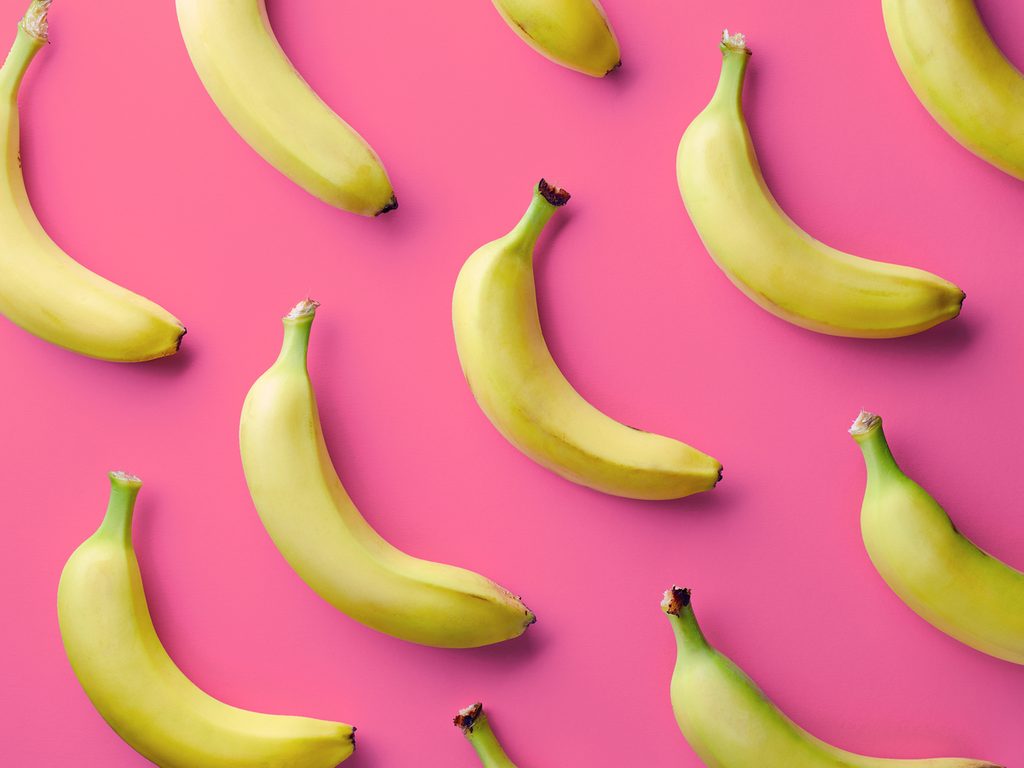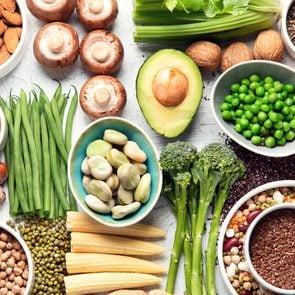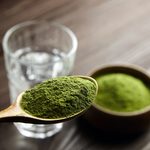If You’re Not Eating a Banana Every Day, This Might Convince You to Start

An apple a day keeps the doctor away? Not so much. Try this fruit instead.
You may know the silent signs of a heart attack or stroke, but preventing one is another beast altogether. Exercise and sleep are great habits that reduce your risk, but don’t overlook the power of your diet. According to a study, you might want to add bananas and other potassium-rich foods to your plan.
Researchers at the University of Alabama have found that eating bananas every day could help prevent heart attacks and strokes. Their study, which aimed to determine how the mineral potassium affects blood flow and artery health, examined mice who received a diet containing either low, normal, or high levels of potassium. Overall, mice given a low-potassium diet had much harder arteries than their counterparts. Mice who received high levels of potassium, on the other hand, showed significantly less artery hardening and reduced stiffness in their aorta, as well.
Previous research supports the importance of potassium
Previous studies and data also show that a potassium-rich diet helps lower blood pressure and reduce the risk of heart disease, according to Ragavendra Baliga, MD, a cardiologist at the Ohio State University Wexner Medical Center. “One analysis published in the Journal of American College of Cardiology in 2011 included data from 11 studies and 250,000 people,” Dr. Baliga says. “This study reported that an average increase of 1540 mg of dietary potassium per day is linked to a 21 per cent reduced risk of stroke.”
The University of Alabama study, however, is among the first to investigate the mineral’s impact on artery health. Getting enough potassium helps maintain a healthy heartbeat, according to Michelle Routhenstein, MS, RD, CDN, CDE, a preventative cardiology dietitian. “When potassium is deficient, low levels can cause heart arrhythmias and potentially impair blood flow to the brain, muscles, and organs,” she says. According to experts, potassium also improves your heart’s function by regulating your heartbeat, digesting carbohydrates, and building muscle. The combination of these perks could do wonders for your arteries, preventing heart disease and strokes down the road.
More research is necessary—and bananas aren’t the only way to eat potassium
The results of the study are promising, according to Ali Webster, RD, PhD, the associate director at the International Food Information Council. However, researchers need to replicate this in people to draw a definitive conclusion. “It certainly won’t hurt to eat potassium-rich foods every day, unless you’ve been instructed to watch your intake,” Webster says. “But we can’t say that one specific food is going to prevent cardiovascular disease.” You need to consider the whole diet as well as other risk factors, too, Routhenstein adds.
For most people, eating potassium-rich foods like bananas, sweet potatoes, beans, and dark leafy greens will contribute to a healthy diet and possibly reduce the risk for cardiovascular disease, according to Webster. Many people in North America consume less potassium than is recommended, and the Dietary Guidelines for Americans named potassium a “nutrient of public health concern.”
While bananas have a reputation for containing lots of potassium, Dr. Baliga normally recommends broccoli, spinach, carrots, cauliflower, and other vegetables to his patients instead. So don’t worry if you hate the yellow fruit—there are still plenty of ways to meet the recommended daily intake of potassium!
Next, find out how it’s actually possible to reverse heart disease.






